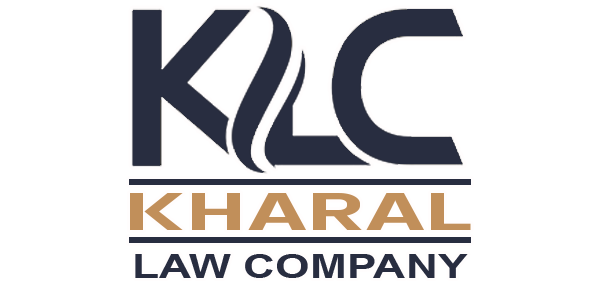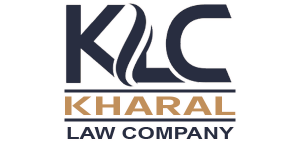Content
- What’s the OTC Market and How Can You Benefit From Trading It?
- Which Brokers allow OTC Trading?
- Who are Best Brokers for OTC Trading?
- How Do I Know If a Stock Is OTC?
- Aren’t any Risks Involved in OTC Trading?
- How Can I Invest in OTC Securities?
- What is the difference between the OTC forex market and traditional exchange trading?
- Exploring the Diverse Landscape of OTC Securities in OTC Markets
Stocks traded on the OTC market may lack the same level of transparency and information as those on major exchanges. Investors may have limited access https://www.xcritical.com/ to financial data and may need to rely more on company disclosures and research. The content on this site encompasses general news, our analyses, opinions, and material from third-party sources, all designed for educational and research aims. It is not meant as direct advice or a prompt to undertake any specific action, including investments or purchases. Before making financial decisions, we urge you to conduct thorough research, exercise personal judgment, and consult with professionals.
What’s the OTC Market and How Can You Benefit From Trading It?
Exchange refers to a trade center, a company or organization that operates a market where shares of companies listed on it are bought and sold by participants. On the other hand, OTC (over-the-counter) refers to a decentralized market where buyers and sellers converse directly with each other online. Therefore, sufficient information about the company or its digital assets is not readily available to investors. The market is typically facilitated forex otc market by a network of dealers or brokers who act as intermediaries between the two parties.
Which Brokers allow OTC Trading?
We picked and answered some of the most important and common queries related to brokers that allow OTC trading. We have picked Admiral Markets as the best OTC forex broker with lowest spread. The fees are based on the commission charge per trade, also on the product you trade. Yarilet Perez is an experienced multimedia journalist and fact-checker with a Master of Science in Journalism. She has worked in multiple cities covering breaking news, politics, education, and more.
Who are Best Brokers for OTC Trading?
OTC Forex brokers act as market makers in a decentralized trading environment, offering trading instruments, quotations, trading platforms, research, and education. The OTC Market is the decentralized network of broker-dealers for stocks and securities not listed on a centralized exchange, such as the NASDAQ or NYSE. Over-the-counter is a reference to how securities in this market are traded, which is directly between buyer and seller. Often, small companies cannot trade or list their digital assets (stocks, bonds) on regulated exchanges. Although they are not fully regulated, traders must adhere to some basic OTC rules. OTC forex brokers can offer their clients a range of services including spot trading, forward contracts, and options contracts.
How Do I Know If a Stock Is OTC?
Within the OTC market, there are also OTCQB and OTCQX tiers, which have slightly higher listing requirements and reporting standards compared to the Pink Sheets. Companies listed on these tiers often provide more information to investors. OTC trading takes place in decentralised over-the-counter markets, where dealer networks facilitate the transactions between buyers and sellers. OTC trading refers to the buying and selling of securities outside of formal exchanges, without the supervision of an exchange regulator. In summary, OTC trading offers flexibility and customisation but may have higher fees and lower liquidity.
Aren’t any Risks Involved in OTC Trading?
Examples of OTC markets are the Forex (Foreign Exchange) market of FIAT currencies, that of cryptocurrencies and that of derivatives such as options. Algorithmic trading is a method of executing trades using automated pre-programmed trading instructions. These instructions can take into account variables such as time, price, and volume. Algorithmic trading can be used in OTC markets to execute large orders or to trade at optimal times. Despite this regulation, OTC trading is still considered riskier than exchange trading.
How Can I Invest in OTC Securities?
There are three types of OTC markets, as indicated by the OTC market group in charge of securities traded on the public market. However, the classification is based on the quality of the information concerned companies or securities provide. As the market allows a wide range of securities to be traded, it gives an option to adapt the contract specifications to the risk exposure. On the OTC, dealers set prices at which they want to buy or sell assets. On the OTC, dealers set prices at which they want to buy or sell assets, and prices are monitored through the Over-the-Counter Bulletin Board (OTCBB).
What is the difference between the OTC forex market and traditional exchange trading?
Forex trading also takes place in over-the-counter markets as transactions are executed outside of a centralized exchange. OTC trades happen directly between two parties without a broker or centralized exchange. Trades on an exchange must go through a third party and have next to no privacy. The OTC Pink Market or “Pink Sheets” is the most open and unregulated trading network. Pink Sheet companies have almost no requirements to be listed in the Pink Market.
However, this does not imply endorsement or recommendation of any third party’s services, and we are not responsible for your use of any external site or service. PipPenguin and its staff, executives, and affiliates disclaim liability for any loss or damage from using the site or its information. OTC trading carries risks such as counterparty risk, lack of transparency, and lower liquidity compared to formal exchanges. The complex nature of derivative contracts in OTC trading can also increase the risk of unexpected events. The OTC markets give traders access to companies that are growing but aren’t yet large enough to be listed on the NASDAQ or NYSE.
- The next step to trade on IQ Option’s OTC market will be to attach the MT2IQ-OTC indicator which you can find on MT2Trading Platform download files.
- However, the payments we receive can influence the products, companies, or services we highlight and evaluate.
- Moreover, the OTC market does not have this limitation, unlike the well-standardised products traded on the deal with a narrow range of quantity, quality, and identity to be transparent in trading.
- Or you’re an investor seeking to trade more exotic securities not offered on the New York Stock Exchange (NYSE) or Nasdaq.
- They guarantee the security of trader funds and the execution of orders placed.
- For the purpose of getting the actual picture, we placed real trades in each popular market.
Here is a list of OTC forex brokers, which we have tested and reviewed. Trading stocks OTC can be considered risky as the companies do not need to supply as much information as exchange-listed companies do. This means that companies can often claim to be ‘up and coming’ which is not always the case. Stocks and other financial instruments can also be traded OTC – this includes derivatives such as swaps and forward contracts. Investors interested in the OTC market should exercise caution, conduct thorough research, and carefully evaluate the risk profile of the specific securities they consider. It’s a financial landscape where opportunity and risk go hand in hand, and understanding its nuances is key to successful navigation.
This decentralisation eliminates the need for a central exchange or broker, allowing market participants to engage in direct transactions. Join TIOmarkets, a top rated forex broker, and step into a realm of trading possibilities. With over 170,000 accounts opened across more than 170 countries, we offer a robust platform to trade Forex, indices, stocks, commodities, and futures markets with low fees. Enhance your trading skills with our comprehensive suite of educational resources and step-by-step guides.
While there are some similarities, there are plenty of differences when you compare the OTC market with exchange trading. On a more traditional exchange, like the New York Stock Exchange, for example, you will see multiple buy and sell prices from various parties. However, with OTC trading, you will carefully choose one broker who you believe will offer you the best all-around trading conditions and go with the buy and sell prices they provide. BlackBull Markets is one of the best over-the-counter Forex brokers on my listing, featuring a cutting-edge trading infrastructure. It has Equinix servers located in New York (NY4), London (LD5), and Tokyo (TY3) for institutional-grade trading conditions.
Commission-based cost structures, especially with a volume-based rebate program, create lower trading costs. Traders should avoid the commission-free marketing trap despite the ubiquity of commission-free trading ads. We introduce people to the world of trading currencies, both fiat and crypto, through our non-drowsy educational content and tools.
In order to be listed a company cannot be going through bankruptcy, be a shell company, or trade at less than five dollars a share. Stocks that are worth less than five dollars a share are considered “penny” stocks. Seeking the guidance of a qualified financial professional can also help you navigate the complexities of these markets. Stocks can move from the OTC market to the NYSE if they meet the stock exchange’s requirements. Below our cureated list of the best OTC forex brokers, with details about features and characteristics.
The spreads for popular instruments are generally higher than the average. We handpicked the best OTC forex brokers based on our trading data and experience as a trader. It serves as a platform for institutions and investors to manage risk, raise funds, and have access to a variety of financial products. The OTC market is primed for development as financial markets continue to adapt, with technology advancements and regulatory changes defining its future. The most popular OTC market is forex, where currencies are bought and sold via a network of banks, instead of on exchanges.
The content is not tailored to individual financial circumstances or needs. Information on this website might not be in real-time or entirely accurate, with prices potentially sourced from market participants rather than exchanges. Any financial decisions you make are your sole responsibility, and reliance on any site information is at your own risk. PipPenguin makes no guarantees regarding the website’s information accuracy and will not be liable for any trading losses or other losses incurred from using this site. The site may contain ads and promotional content, for which PipPenguin could receive third-party compensation.
OTC Markets Group operates the OTCQX Best Market, the OTCQB Venture Market, and the Pink Open Market. Although OTC networks are not formal exchanges such as the NYSE, they still have eligibility requirements determined by the SEC. The industry regulatory authority FINRA regulates OTCMKTS by setting and enforcing rules to maintain market integrity, protect investors, and promote transparency. This includes supervising OTC trading, monitoring broker-dealer conduct, and ensuring compliance with applicable securities laws.
The OTC market is where securities trade via a broker-dealer network instead of on a centralized exchange like the New York Stock Exchange. Over-the-counter trading can involve stocks, bonds, and derivatives, which are financial contracts that derive their value from an underlying asset such as a commodity. In summary, the OTC Stock Market offers an avenue for companies that may not meet the criteria for major exchanges to access capital and for investors to trade shares of these companies. But it carries greater risks due to lower regulatory oversight, potentially limited information, and lower liquidity. The over-the-counter (OTC) stock market is a decentralized market where securities are traded directly between two parties, without the use of a central exchange. OTC stocks are not listed on a major exchange, such as the New York Stock Exchange or Nasdaq, and are instead traded through a broker-dealer network.


